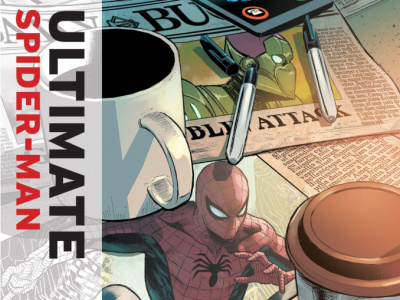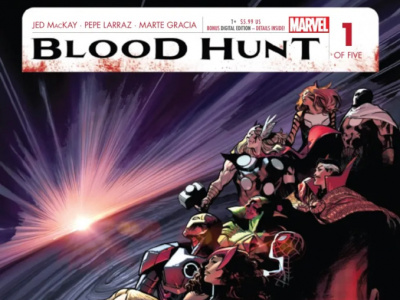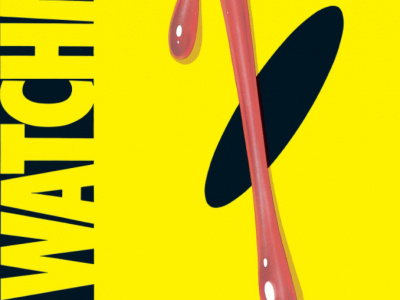 Are the changing dynamics of conventions undermining the economic prospects of creators and exhibitors?
Are the changing dynamics of conventions undermining the economic prospects of creators and exhibitors?For the most part, the mainstreaming of fan convention culture is something to celebrate. Audiences are expanding beyond the traditional core of aging male nerds. More people have a chance to experience the fun and intensity of a con, and the dollars are piling up for everyone from convention organizers to publishers to B-list celebrities.
But the new convention culture is built on top of an existing foundation, and that foundation is crumbling.
A delicate ecosystem. The economic basis of fan shows is straightforward. Organizers use guests and exhibitors to attract fan interest to their convention. Dealers pay to exhibit because fans represent a captive audience of enthusiastic consumers. More overall show activity (guests, exhibitors, special events) leads to more fans wanting to come to the show, which means more customers for the exhibitors, which means more people want to buy tables, which means a bigger show, which can then attract a bigger, better guest list, which drives more fan interest, and so on.
The commercial element of the show floor gives conventions a feeling of activity as well as a place for people to buy and sell stuff they like. It’s also where artists and creators who are not necessarily guests of the convention can do enough business to offset their costs. To the extent that artists can make money at a show, more will come, which may draw more fans (or make the fans in attendance more excited about being there) and add to the cultural cachet of the con.
The health of this ecosystem rests on the willingness of fans to spend money on what the exhibitors have to offer. And that’s where the cracks are starting to appear.
Seeds of discontent. Last week, Denise Dorman, wife of fan-favorite artist Dave Dorman (Star Wars, Battlestar Galactica, Wasted Lands), posted a frank assessment of the economics of conventions from the perspective of the artist/exhibitor, on her blog Comic Book Wife.
"Privately, famed comic book industry personalities everywhere are discussing with each other whether to stop exhibiting at comic book conventions," she writes in a post worth reading in full. "There’s a fine line between being accessible to and pleasing the fans vs. losing money at these conventions."
These concerns echo to some extent the complaints of long-time retailer Chuck Rozanski, who lost so much money at this year’s San Diego Comic-Con that he threatened never to come back. But while Rozanski fumed at publishers daring to compete with dealers to exploit fans’ greed for exclusives and collectibles, Dorman’s concerns touch on the precarious role of creators within the con ecosystem.
In her analysis, the problem comes down to the changing audience at today’s big shows. "I have slowly come realize that in this selfie-obsessed, Instagram era, cosplay is the new focus of these conventions--seeing and being seen, like some giant masquerade party... The hard-working artists and creators who are the very foundation of this industry ...have been reduced to being the background wallpaper against which the cosplayers pose in their selfies."
A vanishing way of life. I followed up with Dorman to get some additional perspective. She says Dave goes to 6 - 8 shows per year, ranging from San Diego Comic-Con to big regional shows like Motor City Con and C2E2 to smaller local cons. He’s been on the circuit since the mid-80s and usually does good business selling prints, sketchbooks and original art. A good weekend nets between several hundred and several thousand dollars.
But good weekends have been hard to come by in recent times. The Dormans lost more than a thousand dollars at this year’s SDCC and comparable amounts at other large, general interest “pop culture” shows. This echoes the experience of many fellow pros, she says.
"Dave’s fans are in their 40s and 50s. These shows are exhausting and expensive for them. And a lot of them are still feeling the pinch from the economic downturn. They were middle class and got wiped out."
The traditional fan-collector audience is getting crowded out by "broke hipsters," Dorman says. "It’s all about getting the souvenir to show off at the office, to prove they were part of the cool scene."
New fans are spending, but not on the same stuff. Research conducted by Eventbrite shows that the vast majority of convention attendees still rank "buying stuff I’m interested in" as the number one reason they go to shows, and fans across all demographic categories spend as much at conventions as they do through retail and online channels.
However, the new cohort of mainstream fans who come to geek culture through the turnstiles of the multiplex represent the generation raised on click-to-buy, digital downloads, and binge-watching. They splurge on media and experiences, but don’t value collecting stuff in the same way as those who grew up in earlier eras of the hobby.
They also represent the crowning success of a decade’s worth of investments by the big media owners of comic and pop culture IP in getting fans to identify with characters and franchises, not discrete media channels (games, comics, movies, etc.) or individual creative voices.
Boom or doom? Shifting fan spending at conventions from creators and dealers to publishers, celebrities and media companies may suit the commercial interests of a consolidating industry, but it fundamentally threatens the structure of fan convention exhibit halls and artist alleys as they’ve existed for the past 50 years.
It is possible to imagine different models of fan conventions that don’t rely on the "nerd swap meet" qualities of the dealer’s room, but it is more difficult to imagine these shows maintaining even a semblance of cultural integrity or authenticity without a place where creators have a reasonable expectation of making back the money it takes to attend the show.
Rob Salkowitz is author of Comic-Con and the Business of Pop Culture. He will be presenting data on conventions at the ICv2 Conference and NYCC next month.







